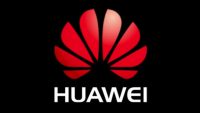Justice Department Charges Huawei with Racketeering, Theft
February 18, 2020
The Justice Department issued a federal indictment, which was unsealed in the Eastern District of New York, accusing Huawei Technologies and its affiliates of a “pattern of racketeering activity” as well as stealing trade secrets from six U.S. firms. The six firms were not named, but a source identified them as Cisco Systems, CNEX Labs, Fujitsu, Motorola Solutions, Quintel Technology and T-Mobile. Among the reportedly stolen information were source code and manuals for wireless technology.
The New York Times reports that, “the charges add more weight to Washington’s pressure campaign against Huawei, which is already barred from buying many American products and is viewed by the Trump administration as a threat to national security.”

This follows on the heels of four Chinese military members being charged with hacking into Equifax, stealing “trade secrets and the personal data of about 145 million Americans in 2017.” The Department of Commerce “extended the temporary license that allows American companies to continue doing some business with Huawei” to April this year.
A racketeering indictment is ordinarily used to target “mob leaders and gang kingpins” for crimes that “would otherwise fall outside the statute of limitations.” Huawei is accused of carrying on a criminal conspiracy since “at least 1999.” Separately, the six named companies have filed legal suits against Huawei over the years.
The racketeering charge could also impact the case last year when the Justice Department “charged Huawei’s chief financial officer, Meng Wanzhou … outlining a decade-long attempt by the company to steal trade secrets, obstruct a criminal investigation and evade economic sanctions on Iran.” Named in the recent indictment, Meng is currently in Canada, out of jail on bail and awaiting extradition to the U.S.
Although racketeering isn’t a crime under Canadian law, Canadian extradition expert Gary Botting stated that the country’s extradition treaty with the U.S. “allowed aspects of racketeering to be legal grounds for an extradition.”
The U.S. government’s push against Huawei is bipartisan. Senate Intelligence Committee members Richard Burr (R-North Carolina) and Mark Warner (D-Virginia) stated that, “the indictment paints a damning portrait of an illegitimate organization that lacks any regard for the law.”
Huawei has made significant inroads in selling its 5G technology around the world (except in the U.S.), and “intelligence community analysts say Huawei can use its network equipment to monitor traffic across a network and potentially engage in unlawful surveillance.” Huawei’s dominance in 5G also puts it “in a position to gain a huge economic edge over U.S. tech giants,” and Attorney General William Barr noted that, “our economic future is at stake.”
“The risk of losing the 5G struggle with China should vastly outweigh other considerations,” Barr said, adding that the U.S. “should consider providing direct or indirect financial support to Nokia and Ericsson, two European companies that are the primary competitors to Huawei’s networking gear.”
Huawei chief security officer in the U.S. Andy Purdy said the company is “confident that it will be exonerated in the criminal justice system,” adding that the U.S. campaign against Huawei will “ultimately hurt America … by eliminating jobs in the United States and reducing competition in the telecommunications industry.”
Related:
Huawei Scare Pushes Carriers to Tackle Dominance of 5G Suppliers, Bloomberg, 2/17/20
U.S. Weighs New Move to Limit China’s Access to Chip Technology, The Wall Street Journal, 2/17/20

No Comments Yet
You can be the first to comment!
Sorry, comments for this entry are closed at this time.